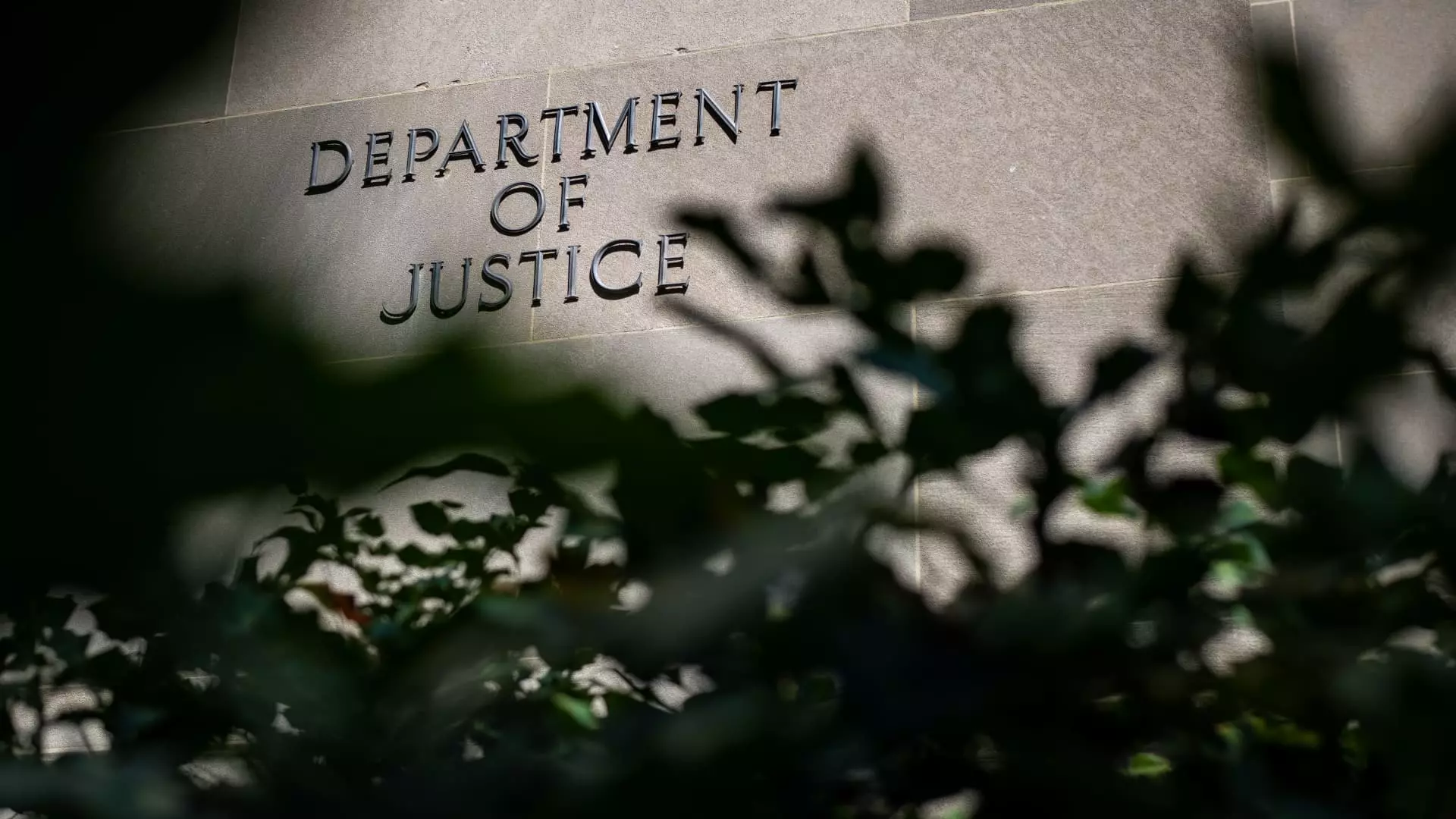The recent announcement from the U.S. Justice Department (DOJ) to dismantle its National Cryptocurrency Enforcement Team (NCET) marks a significant pivot in the government’s strategy toward regulating the burgeoning cryptocurrency sector. This move signals an unsettling trend, especially for those who believe in the necessity of robust oversight in financial transactions—especially those involving digital assets, which have become synonymous with both innovative technology and criminal enterprise.
Deputy Attorney General Todd Blanche’s memo outlining this shift reveals a decentralized framework where individual U.S. attorney offices will now assume responsibility for digital asset cases. This structural change, purportedly aimed at focusing on terrorism-related offenses and investor frauds, is not just a bureaucratic reshuffling. It is a wholesale regression in enforcement policy that suggests a troubling endorsement for laissez-faire approaches in sectors long plagued by fraud and abuse.
Regulatory Regress: A Recipe for Disaster?
Parsing through Blanche’s memo, one cannot help but feel a sense of dread regarding the implications of this new strategy. The directive not to pursue enforcement against crypto exchanges or platforms for the actions of their users is bewildering. Such a laissez-faire attitude gives the impression that the DOJ is willing to turn a blind eye to the potential for widespread abuse in the cryptocurrency ecosystem—an ecosystem that has been marred by scams, hacks, and other malfeasances.
For instance, the decision to halt active investigations that do not fit the newly defined parameters disregards the complexities surrounding cryptocurrency transactions. By ignoring the nuances that can emerge in these cases, the DOJ effectively alienates investors and consumers who are vulnerable to fraud. It raises the question: who will protect them when criminal enterprises use digital currencies as tools for deception?
The Timing is Telling
This sudden shift, coinciding with the Trump administration’s broader pivot towards deregulation, resonates alarmingly with past critiques of political interference in regulatory bodies. It’s worth noting that Trump’s executive order advocating for lax crypto regulations aligns conveniently with his personal business interests in the blockchain sector. His family’s involvement in crypto projects, including a yet-to-launch decentralized bank, complicates any notion of impartiality. When political leaders stand to gain financially from relaxed policies, skepticism is warranted.
This apparent conflict of interest raises profound ethical questions: how can we trust government institutions to operate impartially when the financial motivations of their leaders intertwine with public policy? The risk here is not just regulatory capture; it is a profound erosion of public trust in the institutions meant to safeguard our financial systems.
What Does This Mean for Investors and Entrepreneurs?
The ramifications for investors stretch far beyond the immediate discomfort of reduced oversight. With significant fraud cases littering the landscape, the absence of a dedicated enforcement team sends a chilling message to potential investors, who may now feel uninspired or intimidated to engage in the otherwise thriving cryptocurrency market. Instead of a vibrant ecosystem bolstered by safety and security measures, it risks becoming a lawless frontier—where only the most unscrupulous can thrive.
Furthermore, while the DOJ maintains its commitment to prosecuting crimes involving terrorism and human trafficking associated with digital currencies, it’s crucial to remember that these offenses represent just a fraction of the illicit activities woven into the cryptocurrency space. The risks extend to a broader spectrum that includes money laundering, scams, and even identity theft, all of which will flourish in an unchecked environment.
A Call for Accountability and Vigilance
The DOJ’s decision to pivot away from aggressive cryptocurrency enforcement calls for immediate and collective reconsideration of regulatory frameworks surrounding digital assets. Industry stakeholders—investors, entrepreneurs, and regulators alike—must advocate for a balanced approach that mitigates risks while promoting innovation.
Laissez-faire policy, especially in an area as dynamic as cryptocurrency, ultimately capitulates to the principle of survival of the fittest, which, in this context, is distressingly reminiscent of the Wild West. As we stand at this crossroads, it becomes imperative to galvanize public opinion and push back against the tide of deregulation. Only through persistent advocacy for accountability and responsible governance can we hope to cultivate a secure and equitable digital asset ecosystem for all.


Leave a Reply